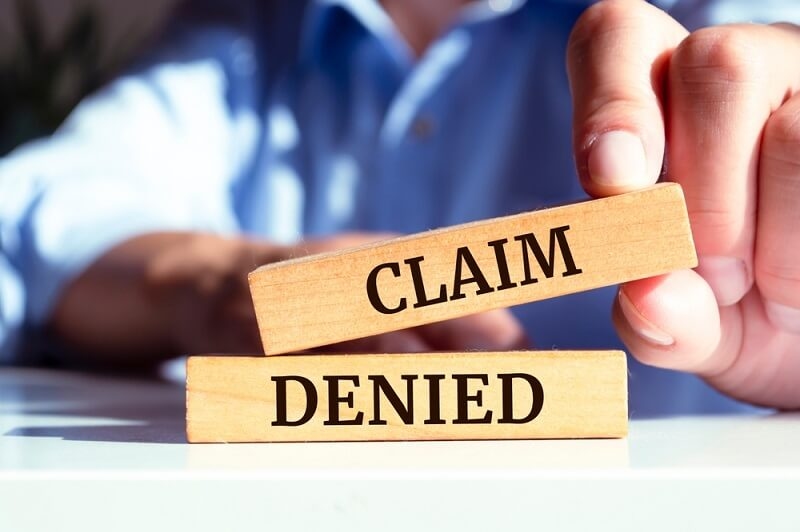
When an insurance claim is filed, one would anticipate a smooth process that would assist one in overcoming a loss. However, minor errors bring about major issues. The result of having no one to deal with the agents to settle the cases is that many people lose thousands of dollars, or their claims are denied due to a basic mistake that might have been avoided. The knowledge of the most frequent insurance claim mistakes and possibilities to avoid them can be of crucial importance. The same rules tend to apply whether it is home insurance, auto insurance, or health insurance. It is time to go through these errors and see how to handle your claim correctly.
You must be aware of exactly what you are covered for before you have to make a claim. Failing to do so will cause one to have a mix-up and lose money in the future.
A large number of individuals will read quickly over their policy and miss all the details. This may result in frustrations when a rejection is made on a policy services that openly exclude the same as per the insurance cover. Read the whole document always, and in case of something you do not understand, ask your agent.
Because you have insurance does not necessarily mean that you are covered. By way of example, your basic homeowners policy does not generally cover flood damage. Be sure to learn the limits, exclusions, and requirements ahead of time before the filing is needed.
Time matters when it comes to insurance claims. Waiting too long can result in your claim being rejected.
Most policies require you to report a loss as soon as possible. Delaying even a few days could give the insurance company a reason to deny your claim.
Every insurance policy has a set time frame for filing. If you miss it, you might lose your right to compensation, even if your claim is valid. Mark deadlines on your calendar as soon as the incident happens.
One of the most common insurance claim mistakes is failing to give accurate details.
If you forget to mention important details, the insurer may think you are hiding something. This can slow down the process or cause a denial. Always be thorough when describing the incident.
Simple insurance filing errors, like wrong dates or incorrect addresses, can create confusion and delays. Double-check everything before submitting your claim.

Good records are your best defense in the claim process. Without them, it is harder to prove your case.
Immediately after the damage, photograph or video the damaged photographs or videos. These are key evidence to your assertion. In their absence, the insurer can say the damage is not as serious as you say.
It could be repair bills, police reports, or even medical records; keep all this somewhere safe, but in one place. These records can be used to demonstrate the true figure of your loss.
Insurance companies present fast settlement deals sometimes. One may be tempted to accept immediately, but this may turn out to be a costly oversight.
Settling and not knowing up-front the cost of repairs or medical expenses may result in you paying out-of-pocket. Do not accept any amount without having all the information.
People are not aware that it is possible to negotiate. In case the offer is insufficient, you can show even more evidence establishing the position and ask for a more reasonable payout.
Your deductible and insurance cover where you are entitled to big part is involved. Getting them, unfortunately, can be a nasty surprise.
An insurance deductible is the coverage that you must pay before the insurance benefits start covering the costs. Sometimes it may not make sense to make a claim, especially when the cost of repair is just slightly higher than your deductible.
So whatever amount you may be losing that exceeds what would be covered by your policy, that is the maximum you are likely to receive in the form of reimbursement of costs incurred. Ensure that the maximums are sufficient for your requirements.
Communication that is clear and appropriate at the right time can also help you evade rejection of the claim as well as accelerate the process.
In case of further requests for information by your insurance company, make sure to respond without delay. Delays on your part will generate a delay in the processing of your claim.
You have to always maintain the writing of discussions with the insurance company. This can assist in case of conflict in the future.
Insurance companies have specific steps for filing a claim. Skipping or ignoring them can hurt your chances. Following each requirement closely helps keep your claim moving smoothly.
Sometimes claims must go through a specific department or representative. If you contact the wrong person, your claim may get delayed.
Your insurer might need you to fill out certain forms before processing your claim. Missing even one form can slow things down or lead to a denial.
It is natural to want to fix the problem right away, but doing so before the insurer inspects the damage can cause problems.
If the insurance adjuster cannot see the damage, they may reduce or deny your claim.
If repairs are necessary for safety, you can make temporary fixes. For example, covering a broken window to keep out rain is fine, but replacing the whole window before inspection is not recommended.
One of the easiest claim process tips is to review your entire submission before sending it. This simple step can help you catch mistakes early and avoid unnecessary delays. A quick review can help you spot missing documents or unclear descriptions. Fixing these before submission can save time and trouble.
To sum up, to save time, money, and stress, it is prudent to avoid typical insurance claim pitfalls. Whether it is just being aware of what your policy says to maintaining proper records, even the smallest of details are important. When filing a claim, always file at the right time, be comprehensive, and keen when pursuing the claim. Never hurry to accept or receive offers without reviewing and look out to get professional help. By being organized and armed with information, you can preserve your rights, prevent denial of your claims, and rest assured that you will come away with a just settlement that is due to you as the premiums paid to your insurance cover.
This content was created by AI